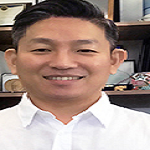Home - KEYNOTE SPEAKERS
Dr. Zhenyu Chu received Ph.D degree from Nanjing Tech University in 2013. He became a professor in 2020. He was a visiting professor in Curtin University, Australia from 2017-2018. He is the fellow of International Association of Advanced Materials, IAAM. He serves as member of Anesthesiology Committee of China Research Hospital, and member of Medical, Biological Membrane Committee in Chinese Industry Association. He also serves as an associate editor of Frontiers in Nanotechnology, and editor board in Current Research in Biotechnology, and Chinese Journal of Chemical Engineering. He has won the Scientist Medal of IAAM in 2023. Chu’s research interest is focused on Separation & sensing membranes for biosensors in industrial fermentation, food safety and clinical diagnosis. He developed various novel methods of nanostructure control on biosensing materials to obtain a series of regular nanostructures for the performance enhancement. He combines the principles of membrane separation and electrochemical biosensing together to propose a separation-biosensing membrane, achieving the dynamic and realtime blood sieving and serum analysis simultaneously in clinical surgery. The membrane has then been miniaturized as a novel flexible microchip to construct a commercial bioanalytical instrument for the quality check in more than 10 fermentation companies. Chu has published 68 SCI papers in Science, Angewandte Chemie International Edition, Advanced Materials, ACS Nano, Advanced Functional Materials, Chemical Communications, Biosensors and Bioelectronics, Journal of Materials Chemistry, Nanoscale et al., with over 2700 citations and Hindex 27 (Google Scholar); 20 international conference papers with winning excellent presentation awards; 15 granted patents and 9 pending patents including 1 European patent.
Darwin Eton is a Distinguished Fellow of the Society of Vascular Surgery. He graduated from the Massachusetts Institute of Technology (B.Sc, MSc.) in 1978 and New York University Medical School (M.D.) in 1982. He initiated this project in 1999 at University of Miami where he was Professor and Chief of Vascular Surgery. He continued the clinical work as Professor of Surgery at the University of Chicago. This project won the Cures Within Reach Award in 2016. The proceeds were used to fund a confirmatory study at University of Illinois at Chicago. He started Vasogenesis Inc (Boston MA), where he presently serves as the Chief Research and Medical Officer. He has authored 45 peer review publications, in addition to dozens of book chapters, and textbooks in Vascular Surgery, and has been an invited speaker in USA and internationally.
Professor Hendrik Viljoen is on the faculty of the Department of Chemical and Biomolecular Engineering at the University of Nebraska, Lincoln, U.S.A. He received his MS in chemical engineering and PhD in applied mathematics from the University of Pretoria in South Africa and did a post-doctoral fellowship at the University of Buffalo. His research is wide ranging and combines experiments and mathematical modeling. His research includes contributions on chemically driven natural convection in porous media, thermal stress, fracture mechanics in catalysts and instabilities in combustion. His interests took a turn towards bio-engineering when he started to work on the design of fast PCR thermocyclers. The first models used Rangue-Hilsch vortex tubes to affect rapid heating/cooling by convection. A commercial version was developed, using Peltier elements and deformable cuvettes. The kinetics of different polymerases were investigated to find ones which do not only match the speed of the thermocyclers, but have self-editing features that limit error accumulation during DNA amplification. To complement the speed of the PCR thermocyclers, methods were developed for the rapid lysis of mycobacterium tuberculosis and clostridium difficile, and the collection of their DNA. Recently he has been working on methods to improve the efficiency of cell culture. A novel extrusion system is used to make submillimeter alginate (or carrageenan) tubes. The hollow space in the tubes is seeded with cells. Tubes are placed in bioreactors, and the cells grow to high densities inside the tubes, delivering cell production of 40 to 50 million per mL of reactor volume.
Associate Professor Zhong holds the position of Principal Investigator at the National Heart Centre Singapore (NHCS) and serves as an Associate Professor at the Duke-NUS Medical School. Additionally, he holds a joint appointment at the Department of Biomedical Engineering, National University of Singapore. Zhong also serves as the director of College of Healthcare Engineering within the SingHealth Duke-NUS Academic Medical Center (AMC). Within NHCS, he leads the Cardiovascular Engineering and Innovation Programme and serves as a co-director of the Cardiovascular Systems Imaging and Artificial Intelligence (CVS.AI) Lab. Zhong's research interests include translational imaging, artificial intelligence (AI), cardiovascular mechanics, and cardiovascular ageing. He has developed innovative imaging tools for assessing coronary calcium score, epicardial adipose tissue, stenosis and plaque characteristics, and fractional flow reserve in coronary artery disease. These tools are currently being integrated into clinical practice. Moreover, Zhong is a primary co-founder of Theia Health Pte Ltd, a startup based in Singapore that offers clinically validated AI solutions for early detection of atherosclerosis. As a principal investigator, Zhong has secured S$12.8 million in funding, and as a co- investigator or mentor, he has obtained S$11.3 million in funding from organizations such as NMRC, NRF, BMRC, and BEP, A*STAR. He has filed over 10 patents and authored more than 170 scientific publications, 19 book chapters, and 1 book. Zhong also serves on the editorial boards of prestigious journals including the Journal of Cardiovascular Magnetic Resonance (JCMR), Journal of Magnetic Resonance Imaging (JMRI), and Medical & Biology Engineering & Computing (MBEC). Zhong earned dual bachelor's degrees in mechanical engineering and economics from Huazhong University of Science & Technology, as well as a Ph.D. in Engineering from Nanyang Technological University, Singapore. He completed the Advanced Certificate in Technopreneurship (ACT) fellowship from Singapore Management University (SMU) in 2018-2019.
Csaba Oláh obtained his medical degree in 1996 at the Szent-Györgyi Albert University, and his economics degree at the University of Szeged in 2001. He is a consultant neurosurgeon, interventional neuroradiologist and clinical pharmacolist In Borsod County University Teaching Hospital . He has completed his PHD from Debrecen University, Hungary. He is Assistant Professor at Tokaj University. He has over 100 publications ( his Impact Factor 133) that have been cited over 300 times, and his publication H-index is 9. He has been serving as reviewer of several reputed journals. He was the editor of 4 medical books and also wrote 30 book chapters. He has 10 PhD students. He is an active member of 14 international scientific societies. He was Principal Investigator of 11 multicentre studies. His main area of interest: spine and brain neurosurgery, neurointerventional treatments, conservative spine treatments, laser treatments, traction treatments, complex treatment of brain aneurysms, treatment of vasospasm caused by subarachnoid hemorrhage, functional food developments, balneology.

Prof. Kim is a professor at the Department of biomedical engineering, UNIST, Korea. After completing his MA in medical science at Yonsei University College of Medicine, he worked another year as an assistant lecturer at the Cancer Metastasis Research Center (CMRC) of Yonsei medical school in Seoul. Kim came to Münster, Germany, in 2005 and received a grant from the “Interdepartmental Graduate Programme for Experimental Life Sciences (iGEL)“ as the medical faculty of the Westfalian University of Münster and the Max Planck Institute for Molecular Biomedicine in Münster, Germany. In April 2009, he completed his Ph.D. thesis under the supervision of Hans R. Schöler. This was the year when Kim was also awarded the MTZ®-MPI-Award of the MTZ® Foundation for his scientific work. In addition, he was selected by Korea’s one of the most popular newspaper, Dong-A Ilbo, as one of the 100 person who will be leading Korea in 2030. In June 2010, he was rewarded the Otto Hahn Medal from the Max Planck Society for recognition of his landmark contributions the first in Korea. And His research group was selected as a member of Max Planck Partner Group from MPG, Germany in 2012. He received the award from the Minister of SMEs twice. He mainly worked on generating artificial tissues from patient-specific stem cells through direct conversion technology. He is currently working at Stem Cell Research Center as a director, Ulsan National Institute and Science (UNIST) as a professor, and SuPine Therapeutics as a CEO.
Dr. Jin-Ku Lee is an associate professor at Seoul National University College of Medicine (SNUCM), Korea. He achieved both M.D. (2003) and Ph.D. (2013) at SNU. His research fields of interests were cancer genomics and pharmacogenomic analysis using patient-derived tumor models for precision oncology. In respect to these research areas, he has published many SCI(E) articles, including Nature genetics (2017, 2018), Genome Biology (2019) and Biomaterials (2023). In particular, his lab is focused on developing cutting-edge technologies in patient tumor organoid cultures and 3D-based drug screening accompanied with systemic identification of genomic biomarkers for drug sensitivity.

Hye Jin Lee received obtained her Ph.D. in 1999 from the Ecole Polytechnique Federale de Lausanne, Switzerland, with Prof. H. H. Girault on creating novel microfabricated liquid–liquid interfaces for use as ion-selective sensors. Following postdoctoral research with Prof. R. M. Corn at the University of Wisconsin-Madison, she undertook an Associate Researcher position at the University of California-Irvine where she developed a series of novel surface enzymatic amplification methodologies that enable the direct detection of biomolecules down to femtomolar concentrations. Dr. Lee then joined Kyungpook National University (Daegu) as an Assistant Professor in 2008, and promoted to Associate Professor in 2012 and full professor in 2017. Prof. Lee's primary research focus is the design and application of highly sensitive and selective biosensors integrating emerging nanotechnologies for biomedical and environmental sciences.
Alan Wang is a principal investigator and Associate Professor at The University of Auckland. He has more than ten years of research experience in bioengineering informatics and integrated medicine, especially in advancing the role of medical informatics in health care. His research interests include bioengineering, data informatics, neurocomputing, and biomedical statistics and simulation. He has developed medical data analytics methods for mobile health and personalized diagnosis and prognosis based on intelligent computing theories. He has experience analyzing huge cohorts of patient data with applications of early diagnosis, disease understanding, and effective treatment of patients with different disorders. He serves as an Editorial Board Member and an Active Reviewer for several international journals.
Dr. Congwu Du received her PhD in Biomedical Engineering (BME) from the University of Luebeck, Germany in 1996. She is currently a professor at the Department of BME, State University of New York at Stony Brook. Her research interest focuses on development of advanced optical techniques for translational research, specifically for neuroimaging with the goal of addressing challenges related to the brain functional changes induced by drug addiction. She has over 100 scientific publications, also has been serving as a principle investigator on many bioimaging-based research grants, including the cutting Edge Basic Research Award (CEBRA) and the Awards of the American Recovery and Reinvestment Act (ARRA) and Brain Initiatives from National Institute of Health (NIH) and received the Outstanding Mentor Award from Department of Energy (DOE). She is a fellow of AIMBE, also she serves on the editorial board of several journals in the areas of Neuropharmacology, Neuroimaging and Biomedical Optics and Instrumentation.